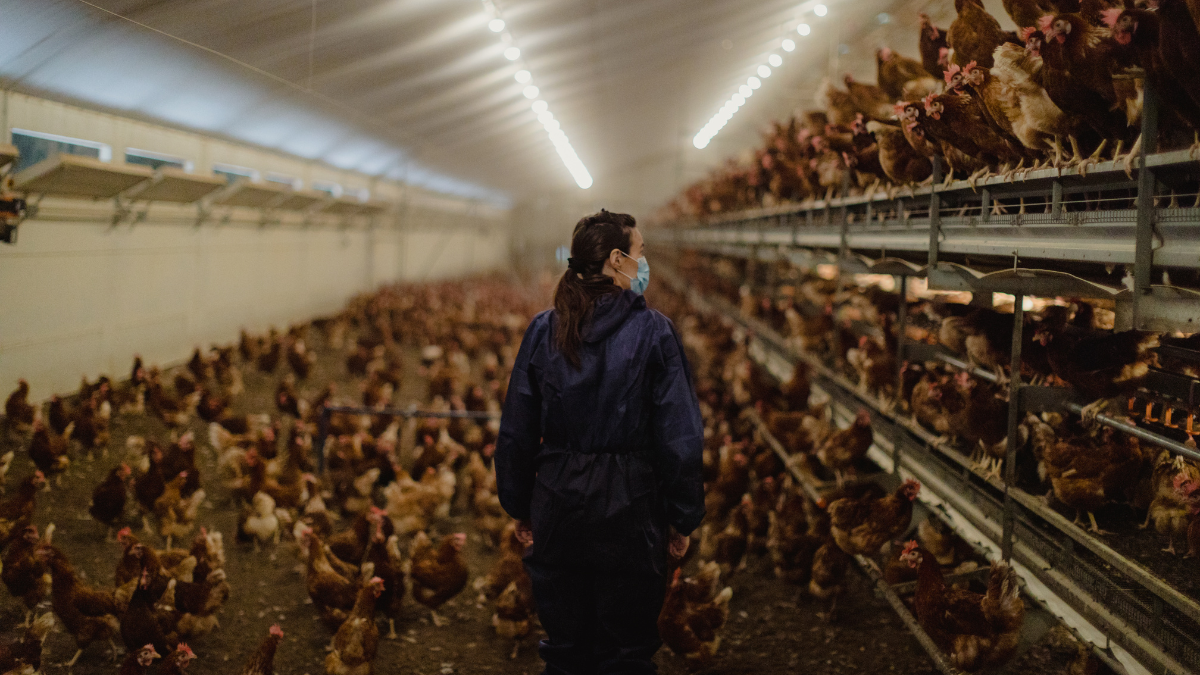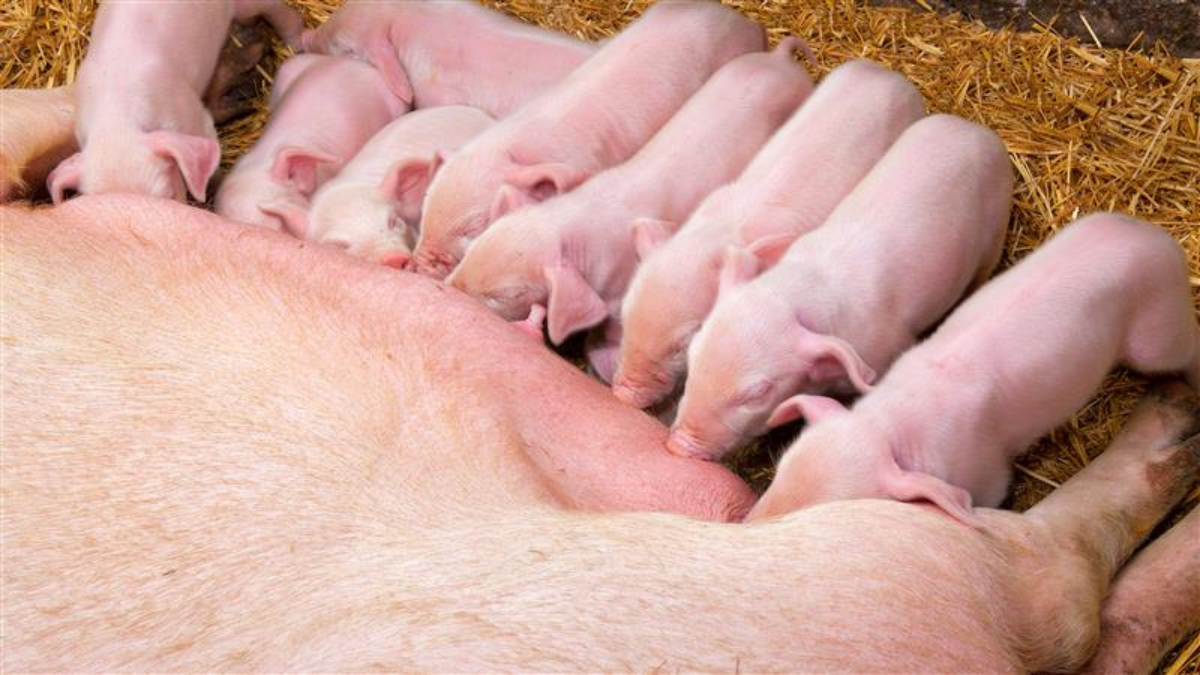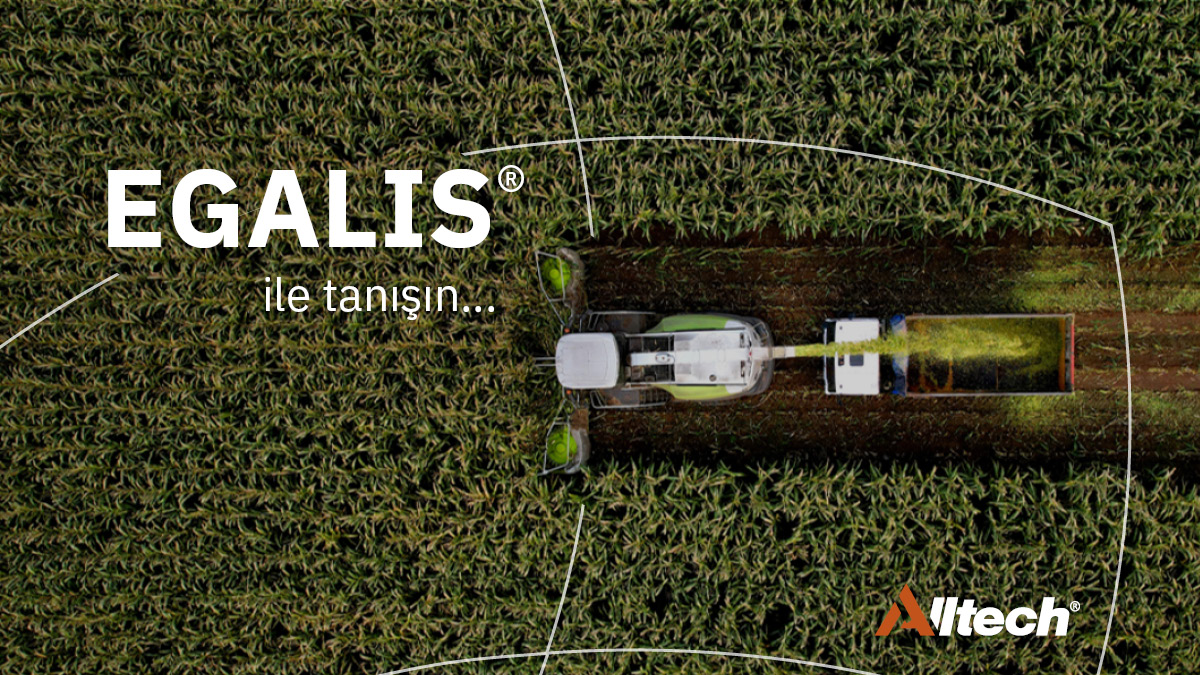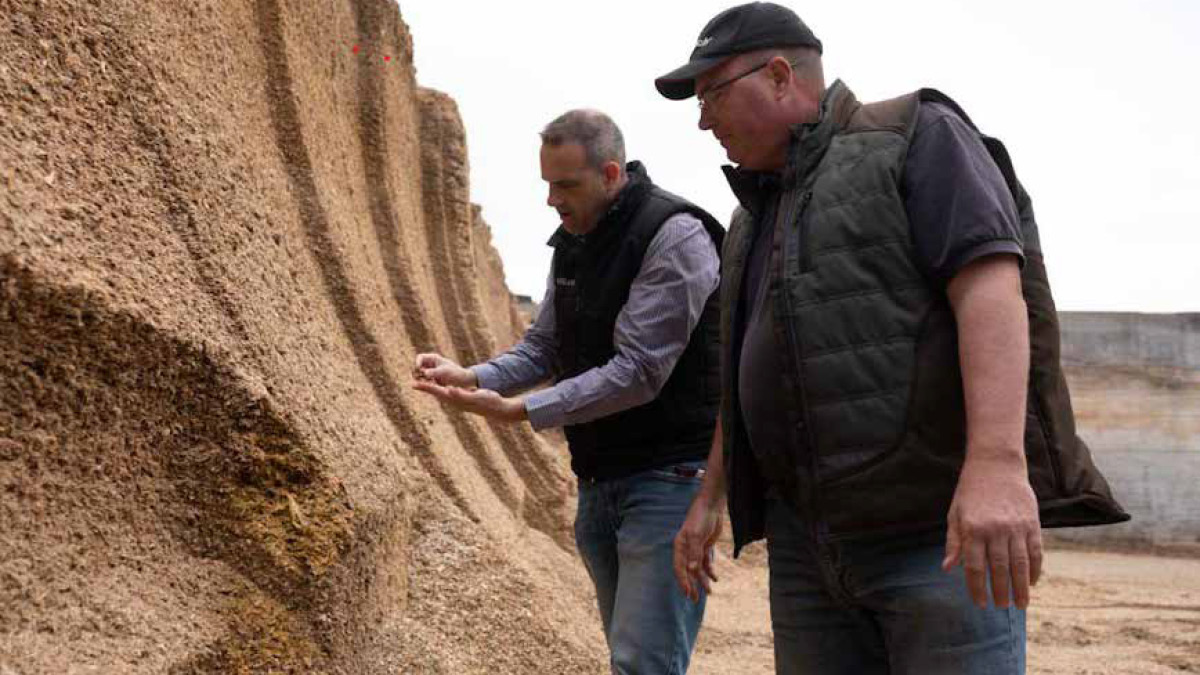Biosecurity tips for poultry farming to prevent bird flu
With confirmed cases of avian influenza on the rise in the UK and Ireland, biosecurity in poultry farming is at the forefront of everyone’s minds.
Whilst most biosecurity protocols are standard across poultry units it is always best to be mindful of farm-specific requirements, including good cleaning and disinfection practices if bringing equipment onto different sites, to try and provide best protection for poultry farmers and their flocks.
If in doubt, check with the farm manager prior to arrival and do not attend sites unless necessary.
There is not yet a mandatory housing order in the UK as there is in Ireland, and whilst keeping free-range birds indoors provides another level of protection for birds, it does increase pressure on litter management where birds would usually spend the majority of their days out on the ranges.
Signs and symptoms of avian influenza in poultry
Avian influenza (AI), a disease caused by type A influenza viruses, can infect both wild and domestic birds. Several factors can contribute to the spread of AI, such as migratory bird flight patterns, international trade, and points of cross-contact between humans and wild birds. AI is more commonly detected in colder regions due to the resilience of the virus in low-to-freezing temperatures.
There are two clinical types of influenza virus in poultry: highly pathogenic (HP) and low-pathogenic (LP). The HP strains of bird flu can spread rapidly among poultry flocks and may cause multi-organ failure and sudden high mortality levels. The LP strains of bird flu form as asymptomatic infections, respiratory disease, and/or drops in production.
Symptoms indicating avian flu in birds include:
- Sudden death without any warning signs
- Purple discoloration of the wattles, comb and legs
- Swollen head, eyelids, comb, wattles and hocks
- Soft-shelled or misshapen eggs
- Decreased egg production
- Lack of energy, appetite and coordination
- Diarrhoea
- Nasal discharge
- Coughing or sneezing
- Ruffled feathers
How to help prevent avian influenza in poultry
Avian influenza viruses spread through direct contact with infected birds or through contaminated feed, water, equipment and clothing. Therefore, biosecurity is the first and most important method of prevention at the farm level. Poultry producers are advised to:
Prevent wildlife access: Reduce attractants such as standing water, feed spills, and improperly stored waste. Install deterrents such as exclusionary netting and screens, repellent gel, bird spikes, and scare devices, which should be moved and replaced frequently.
Control access of people and equipment: If infected wild birds are in the area, reduce the movement of people, vehicles or equipment to and from areas where poultry are kept. Change your clothes before and after contact with your flock, and ensure that any visitors do the same.
Maintain high sanitation levels: Clean and disinfect regularly, from the property and poultry houses to equipment, vehicles and even footwear. For commercial poultry owners, clean and disinfect your poultry housing at the end of each production cycle. Wash your hands thoroughly before and after contact with birds.
Maintain surveillance and reporting: At a minimum, follow local regulations regarding breeder flock monitoring and testing protocols. Contact a vet if you have any concerns. Also, be sure to report illnesses and bird deaths. Quick action will help protect other flocks in the area if the disease is confirmed.
Effective poultry management is crucial in reducing the risk of avian influenza and protecting flocks from potential outbreaks. By implementing strong biosecurity measures, maintaining proper sanitation, and monitoring bird health closely, poultry farmers can help safeguard their operations. Staying vigilant and proactive is key to ensuring the health and productivity of poultry flocks in the face of evolving disease challenges.
About the authors:

Becca Saunders is Alltech's regional sales manager for poultry in the UK. In this role, Becca works alongside the technical team to provide support for producers across the poultry industry. Before joining Alltech in January 2025, Becca served as an account manager for a large feed compounding business, working with multiple stakeholders to maintain a smooth supply and to problem-solve where necessary. In that role, Becca gained a good grounding in the broiler industry, and she looks forward to working across all poultry species at Alltech.

Colm Ronan is Alltech's poultry manager for Ireland. In this role, Colm is responsible for the coordination and development of Alltech's poultry offerings across the island, both in the north and the south. In addition to acting as a liaison between Alltech’s marketing and research departments, Colm works closely with the company's Irish sales and gut health management teams. He also spends a great deal of time with customers, helping them improve their bird performance and overcome industry challenges.
Prior to joining Alltech in September 2024, Colm worked in a variety of roles in the broiler industry in both Ireland and Sweden. Most recently, he served as the broiler supply manager for Manor Farm, the largest broiler integrator in the Republic of Ireland and part of Scandi Standard AB.
I want to learn more about nutrition for poultry.

<script charset="utf-8" type="text/javascript" src="//js.hsforms.net/forms/v2-legacy.js"></script>
<![endif]--><script charset="utf-8" type="text/javascript" src="//js.hsforms.net/forms/v2.js"></script><script>
hbspt.forms.create({
portalId: "745395",
formId: "7046e5d7-6668-42e6-953d-45ac02f6a192"
});
</script>















 Besin ve kuru madde korumasını artıran silaj inokulantı
Besin ve kuru madde korumasını artıran silaj inokulantı



